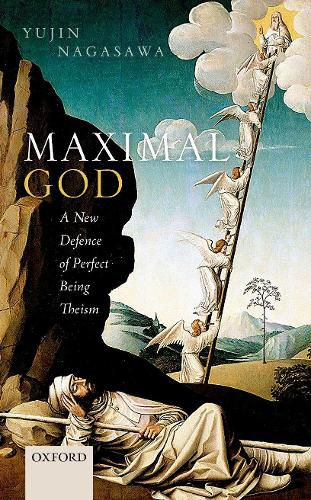Readings Newsletter
Become a Readings Member to make your shopping experience even easier.
Sign in or sign up for free!
You’re not far away from qualifying for FREE standard shipping within Australia
You’ve qualified for FREE standard shipping within Australia
The cart is loading…






Yujin Nagasawa presents a new, stronger version of perfect being theism, the conception of God as the greatest possible being. Although perfect being theism is the most common form of monotheism in the Judeo-Christian-Islamic tradition its truth has been disputed by philosophers and theologians for centuries. Nagasawa proposes a new, game-changing defence of perfect being theism by developing what he calls the ‘maximal concept of God’. Perfect being theists typically maintain that God is an omniscient, omnipotent, and omnibenevolent being; according to Nagasawa, God should be understood rather as a being that has the maximal consistent set of knowledge, power, and benevolence. Nagasawa argues that once we accept the maximal concept we can establish perfect being theism on two grounds. First, we can refute nearly all existing arguments against perfect being theism simultaneously. Second, we can construct a novel, strengthened version of the modal ontological argument for perfect being theism. Nagasawa concludes that the maximal concept grants us a unified defence of perfect being theism that is highly effective and economical.
$9.00 standard shipping within Australia
FREE standard shipping within Australia for orders over $100.00
Express & International shipping calculated at checkout
Yujin Nagasawa presents a new, stronger version of perfect being theism, the conception of God as the greatest possible being. Although perfect being theism is the most common form of monotheism in the Judeo-Christian-Islamic tradition its truth has been disputed by philosophers and theologians for centuries. Nagasawa proposes a new, game-changing defence of perfect being theism by developing what he calls the ‘maximal concept of God’. Perfect being theists typically maintain that God is an omniscient, omnipotent, and omnibenevolent being; according to Nagasawa, God should be understood rather as a being that has the maximal consistent set of knowledge, power, and benevolence. Nagasawa argues that once we accept the maximal concept we can establish perfect being theism on two grounds. First, we can refute nearly all existing arguments against perfect being theism simultaneously. Second, we can construct a novel, strengthened version of the modal ontological argument for perfect being theism. Nagasawa concludes that the maximal concept grants us a unified defence of perfect being theism that is highly effective and economical.